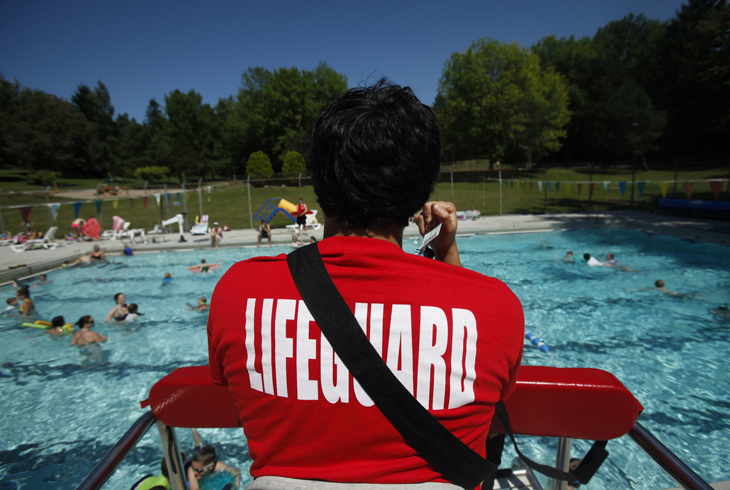Lifeguard training plays a vital role in ensuring the safety and well-being of individuals enjoying aquatic facilities. Different types of aquatic facilities require specialized lifeguard classes to cater to their specific needs.
In this article, we will delve into the various types of lifeguard classes available for different aquatic facilities, discussing their unique requirements, training programs, and certifications.
Lifeguard training for Pools:
Pools are one of the most common aquatic facilities, found in hotels, resorts, community centers, and private residences. Lifeguard training in California offers comprehensive programs tailored specifically for pool lifeguard certification.
These courses cover essential topics such as water rescue techniques, CPR and first aid, surveillance and scanning, and communication skills. These classes equip lifeguards with the necessary skills to respond effectively to pool-related emergencies, ensuring a safe swimming environment.
Beach Lifeguard training:
Beach lifeguarding presents its own set of challenges due to the dynamic nature of open water environments. Lifeguard classes near me specializing in beach lifeguard training focus on a wide range of skills crucial for ocean rescue scenarios.
These programs emphasize ocean currents and rip tides, search and rescue techniques, spinal injury management, and crowd control. Beach lifeguard courses ensure that lifeguards are well-prepared to handle emergencies in the unique coastal environment.
Water Park Lifeguard certification:
Water parks are thrilling recreational destinations, but they also require diligent lifeguarding to ensure the safety of visitors. Lifeguard classes for water parks encompass specific skills essential for monitoring and managing large crowds in water attractions.
These courses cover rescue techniques on water slides and rides, surveillance in wave pools, and the handling of potential water-related injuries. By obtaining water park lifeguard certification, lifeguards are equipped to safeguard the well-being of individuals enjoying water park facilities.
Lifeguard training for Aquatic Centers:
Aquatic centers encompass diverse facilities such as indoor and outdoor pools, spas, and hot tubs. Lifeguard classes catering to aquatic centers provide comprehensive training to handle various water environments and situations.
These programs focus on emergency action plans, pool chemical safety, dealing with sudden illnesses, and performing water rescues in enclosed spaces. Lifeguards certified in aquatic center training can effectively respond to emergencies and maintain a safe environment for patrons.
Lifeguard training for Natural Water Environments:
Apart from beaches, lifeguarding in natural water environments such as lakes, rivers, and reservoirs require specialized skills. Lifeguard courses for natural water environments focus on understanding water currents, hazards, and specific rescue techniques.
These classes emphasize skills like surface dives, using rescue boards or kayaks, and providing emergency care in remote areas. By acquiring lifeguard certification for natural water environments, lifeguards can ensure the safety of individuals exploring these picturesque settings.
Lifeguard training for Diving Facilities:
Diving facilities, such as scuba diving centers and snorkeling destinations, require lifeguards with specialized skills and knowledge. Lifeguard classes for diving facilities focus on water rescue techniques specific to divers, including handling panicked or unconscious divers, providing oxygen therapy, and managing diving-related injuries.
These programs also cover dive site safety protocols, understanding different diving equipment, and conducting effective search and rescue operations in underwater environments. Lifeguard certification for diving facilities ensures that lifeguards are well-prepared to handle emergencies and promote a safe diving experience.
Lifeguard training for Water Sports Centers:
Water sports centers offering activities like kayaking, paddleboarding, and windsurfing require lifeguards who can oversee the safety of participants engaged in these activities. Lifeguard classes for water sports centers cover topics such as watercraft safety, rescue techniques specific to water sports, and effective communication with participants.
These programs also emphasize environmental awareness, including weather conditions, navigation, and the use of safety equipment. Lifeguards certified in water sports center training are equipped to manage emergencies and promote a secure environment for water sports enthusiasts.
Lifeguard training for Residential Communities:
Residential communities often have their own swimming pools or recreational water facilities, necessitating lifeguard services for the safety of residents and their guests. Lifeguard classes for residential communities focus on pool management, crowd control, and effective communication with residents of different age groups.
These programs cover essential skills such as performing pool chemical tests, maintaining pool equipment, and implementing safety protocols for specific community rules. By obtaining lifeguard certification for residential communities, lifeguards can ensure a safe and enjoyable swimming experience for residents and visitors alike.
Concluding Remarks:
Lifeguard classes are designed to meet the specific demands of various aquatic facilities, ranging from diving facilities and water sports centers to residential communities. By providing lifeguards with specialized training, these classes equip them with the skills and knowledge necessary to handle emergencies and ensure the safety of individuals engaging in different aquatic activities.
Whether it’s lifeguard training for diving facilities, water sports centers, or residential communities, the importance of obtaining lifeguard certification cannot be overstated. The American Lifeguard Association (ALA) offers comprehensive lifeguard training programs that cater to the diverse needs of different aquatic facilities, ensuring that lifeguards are prepared to respond effectively to emergencies and maintain a secure environment for all.
